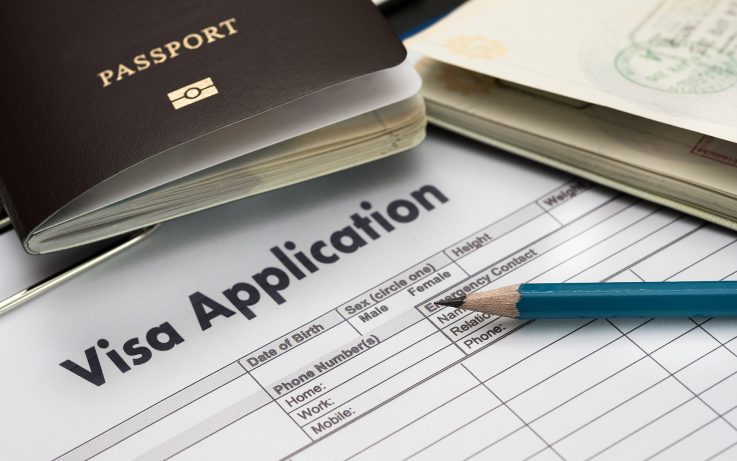UK ILR: Visa Category You Need to Apply for Indefinite Leave to Remain

Thousands of foreigners from all over the world come to the UK every year looking for a better life. However, not all visa categories will eventually give you the right to apply for an indefinite leave to remain (ILR), or settlement. The UK authorities rationalise that applicants must have enough grounds to stay in the country: long-term stay, marriage to a British national, years of hard work, a successful business, or investment in UK-based companies.
In short, to apply for ILR in the UK, a foreign national has to spend a lot of time in the UK and, as a rule, bring value to the country. This article looks at the main challenges foreigners face when relocating to the UK.
Five Advantages of Living in the UK
What makes the UK so attractive to immigrants?
- High standards of living and economic stability
The UK economy is amazingly resilient and almost 100% immune to financial crises. The national currency is stable, people’s income is growing, and the quality of life is up to European standards. - Schooling and higher education
Thousands of students and pupils from all over the world come to study at UK schools and colleges. UK public boarding schools are internationally renowned. There are also several well-known centuries-old universities that not only provide top-quality education but also give their students a great chance to build their network – very useful in future life and career. - Great opportunities for entrepreneurial people
The UK is a widely recognised world financial centre located at the crossroads of trade routes from the Old World and the New World. A viable business can be quickly scaled thanks to the extensive UK market, and fierce competition hardens foreign entrepreneurs and gives them a unique experience. The UK authorities encourage the development of small and medium enterprises. - Reliable banking system
Main UK financial institutions have centuries of history. The UK banking system is very reliable and simple to use both for private and corporate clients. Opening a bank account is much easier for UK citizens and settled people than for foreign nationals.
Rule of law
The British take pride in the independence of their judicial system. Once you have relocated to the UK, you can always count on judicial impartiality, should you ever need to go to court to protect your personal or business interests.
What is the Difference between a Temporary Residence Permit and ILR in the UK?
A temporary residence permit is the first step to ILR and UK citizenship. It is essentially a long-term visa allowing an immigrant to stay in the UK, provided they fulfil certain conditions. A residence permit normally comes in the form of a visa in a passport or a biometric residence permit (BRP) card that can be collected upon arrival in the UK.
The UK authorities have several requirements for an applicant for a temporary residence permit to fulfil. They depend on the applicant’s visa category. A temporary residence permit always has an expiry date so it must be extended when the time comes. Note that a long-term visa does not guarantee that you will be eligible for ILR.
It is clear from the name that ILR in the UK, or indefinite leave to remain, is issued for a lifetime, unless, of course, you happen to leave the UK and stay abroad for several years. Your ILR can be cancelled if you have been absent from the UK for a long time (two years or more), and this seems to be the only restriction. Apart from this, a person with ILR in the UK has the same rights and duties as UK citizens, including the right to vote in local elections.
An immigrant can apply for ILR in the UK if they have stayed here for several years, have a sufficient command of English and pass the Life in the UK test.
You do not have to extend your ILR in the UK, but a BRP card will need to be renewed from time to time. The next step, as a rule, is applying for UK citizenship and a passport.
For your convenience, we have prepared a table on the main differences between a temporary residence permit and ILR in the UK. This information will come in handy in the process of immigration to the UK.
| Conditions | Temporary Residence Permit | ILR |
|
Period of validity |
From six months to five years |
Indefinitely |
|
Requirements for an applicant |
Depends on the visa category |
You have lived permanently in the UK for several years Good command of English You are highly integrated into the British society |
|
Requirements for a holder |
Depends on the visa category |
It can be cancelled if you leave the UK for more than two years |
|
Extension |
Only for some visa categories |
Not required |
|
Next step |
ILR, but only for some visa categories |
Citizenship |
What Visa Categories Do Not Give You the Right to Obtain UK Indefinite Leave to Remain?
Those who came to the UK on a UK Standard Visitor visa, a temporary work visa or a UK Marriage Visitor visa are not eligible for ILR. Besides, there are long-term visa categories that give the right to stay in the UK for several years but do not lead to settlement.
For example, a UK Start-up visa neither leads to ILR in the UK nor can it be extended. Successful start-up entrepreneurs usually switch to a UK Innovator visa, which will give them the right to apply for ILR once they have worked in the UK for several years.
How Long Do I Have to Stay in the UK to Be Eligible for Indefinite Leave to Remain?
The period of residence in the UK required for obtaining ILR is two to ten years, depending on your visa category. On average, you will have to stay in the UK for about five years to be eligible to become UK permanent resident.
How fast you can obtain ILR in the UK depends on how much you have contributed to the development of the country. For example, if you have come to the country on a UK Investor visa, and you have invested more than £10,000,000 in the share capital of UK companies, you might be eligible for ILR in two years. You may also be in a position to obtain ILR faster if you are an entrepreneur, you have come to the country on a UK Innovator visa and your business is successful.
If your job is not on the shortage/eligible occupations list and you are neither an entrepreneur nor an investor, nor a UK citizen’s spouse, you may still be eligible for ILR in the UK if you have lived here legally for ten years.
Who Can Apply for Indefinite Leave to Remain in the UK?
If you decide to relocate to the UK, you need to find out in advance what visa categories will give you the right to apply for ILR and how much time you will have to spend in the UK before that. As we have mentioned above, there are visa categories that will give you the right to apply for ILR after living in the country for several years, provided you meet all the requirements.
All immigration routes, under which you may relocate to the UK and obtain ILR, can be classified into five categories:
- UK Family visas
- UK Work visas
- UK Global Talent visa
- UK business immigration routes
- The route for those who have stayed in the UK for over 10 years.
Let’s look at each category separately:
- UK Family visas
This category is mostly for immigrants who come to the UK on a UK spouse and civil partner visa or a UK fiancé, fiancée and proposed civil partner visa. You will need to maintain the marriage or the partnership (which you have to prove) with a UK citizen or a settled person for at least five years before you can apply for ILR. The advantage of this route is that once you have obtained your ILR in the UK, you can apply for citizenship straight away. - UK Work visas
- You can relocate to the UK on a UK work visa if you are a skilled worker employed by a UK-based company on a long-term basis or transferred to the UK to work at a UK subsidiary, or you are a sportsperson or a minister of religion. The main advantage of this visa route is that it is relatively cheap; besides, your spouse and minor children may come with you. You will be able to apply for ILR in the UK not only for yourself but also for your family, including those children who become of age while in the UK.
- The UK Sole Representative visa is an ideal solution for a top manager or a minority shareholder of an overseas company planning to set up and develop a business in a favourable business environment. A visa holder will be able to apply for ILR in five years.
- UK Global Talent visa
If you have shown outstanding accomplishments in IT, academia and research, or arts and culture, the British authorities will be happy to have you come and work in the UK. That is what the UK Global Talent visa was designed for. A talented person is allowed to bring their family with them. A Global Talent visa holder can apply for ILR after three or five years in the UK, depending on the subcategory. - UK business immigration routes
These are immigration categories for businesspeople that lead to ILR: UK Entrepreneur visa, UK Innovator visa and UK Investor visa. Each visa has its routes and timelines when it comes to ILR; it will determine the time you need to live in the country, which varies from two to five years.
Holders of a Tier 1 Entrepreneur visa, which was closed, or a UK Innovator visa, which is relatively new, can apply for ILR in the UK in three years, provided their business is successful and has achieved certain results.
A UK Investor visa is rightfully considered a privileged visa category because applicants don’t need to prove their knowledge of English, their degree or work experience to come to the UK with their family. The only thing they need to do is to invest £2 to £10 million in a UK-based company or companies. The investor will be eligible to apply for ILR in the UK in two, three or five years. As you might have already guessed, to be able to apply for ILR in two years, one needs to invest £10,000,000. An applicant can apply for ILR in three years if they have invested £5,000,000. To obtain ILR in the UK, an investor and their adult dependants will have to pass the Life in the UK test and an English test.
All foreign entrepreneurs and investors, regardless of when they obtained ILR in the UK, can apply for UK citizenship after only five years of staying in the UK. - Living in the UK for ten years
Foreign nationals who do not fall under the immigration categories mentioned above, but who have lived legally in the UK for 10 years and more, are also eligible for ILR in the UK, provided they meet all the requirements of the Home Office for this route.
EU nationals fall into a separate category. When the UK left the EU, nationals of Iceland, Norway, Switzerland, Liechtenstein and EU states could apply to the EU Settlement Scheme by 30 June 2021.
One can still apply under the EU Settlement Scheme if they fall within the two exceptional immigration categories:
- European relatives of EU citizens settled in the UK by 31 December 2020
- EU citizens who have “reasonable grounds” for not meeting the deadline for applications to the EU Settlement Scheme.
What are the Requirements for Applying for Indefinite Leave to Remain in the UK?
As we have already mentioned, the UK government wants to see settled people highly integrated into British society and with a good command of the English language.
In other words, to obtain ILR in the UK, you must fulfil three main requirements:
- No long absences from the UK. You will get a refusal if you have spent more than 180 days outside the UK in any 12 months.
- You must pass the Life in the UK test. This is something you might want to prepare for. Some questions might puzzle even UK nationals, but fortunately, you can practice the test online.
- You must prove you can speak English to a certain level. It can be done by either providing a degree-level academic qualification from the UK or an American university or passing a special English language test.
The Secret to Obtaining Indefinite Leave to Remain in the UK
As you can see, even the most generous foreign investor has a long way to go from the first visa application to ILR in the UK. This route requires focus and is full of pitfalls.
If you want to obtain ILR in the UK, there are two ways to do it:
- Deal with all the challenges of the UK immigration laws on your own.
- Solicit the help of qualified immigration advisors.
The first one will teach you a lot, but you might pay for this experience with your time and money as you are highly likely to make mistakes and then be forced to correct them.
The second one is simpler and more reliable but it will might cost you more. However, most businesspeople have little time to spare to sit and learn the UK immigration rules and therefore value professional help. The assistance of qualified immigration advisors is often the key to success that will help you obtain ILR in the UK on the first try and within the timeframe given by the law.
FAQ About UK Indefinite Leave to Remain
What is the main requirement for the applicants of Indefinite Leave to Remain?
You cannot spend more than 180 days outside the UK in any 12 months during your stay in the UK.
The Home Office strictly monitors this requirement, and the counting does not start on 01 January, but on any day for any consecutive 12 months.
If your job requires you to travel a lot and you must be away for more than 180 days, you will need to prove it. This would normally be enough to get an ILR.
An exception to the rule is a spouse visa that has no limit to the number of days you must spend in the country.
Make sure to contact experienced immigration advisors to have better chances of getting ILR. They will review all your trips outside the UK and help you calculate your absences.
What is the Life in the UK test and why is it important for ILR?
The Life in the UK test must be taken in one of 30 test centres by all ILR applicants from 18 to 65 years of age. You must book your Life in the UK Test in advance. It costs £50.
You’ll have 45 minutes to answer 24 questions about British traditions, customs, and everyday life.
Practice tests are available on the internet to help you prepare. Interestingly, even people who have lived in the UK for a long time might find the test difficult.
You can retake the test as many times as you need in case of failure. You will need to pay £50 for each attempt. To be well prepared and pass the test, we advise you to study the handbook issued by the UK government that is available in hard copy and online.







